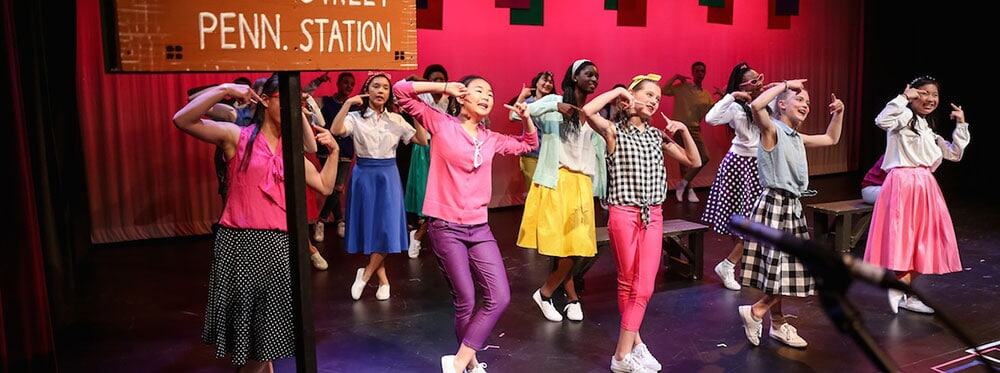Many families know about boarding school, but they assume that this option is available only to students in grades 9 through 12. Junior boarding schools serve younger students (here at Fay, our boarders are in grades 7-9), and they offer middle schoolers unique opportunities and thorough preparation for the road ahead.
A balanced approach
Many junior boarding schools employ a “whole-child” approach that addresses every aspect of student development, from classroom learning to physical and emotional well-being. Here at Fay, we focus on helping students learn how to be good students and good people: the academic curriculum is complemented by daily participation on athletic teams, music and art classes, opportunities to lead in community service and student government, and after-school clubs that include robotics, the student newspaper, songwriting, and contest math. Balance is a focus of the program: personal technology like laptops and cell phones are locked away for most of each day, for example, so students can fully immerse themselves in school life without digital distractions.
Innovative curriculum and new perspectives
Junior boarding schools have the advantage of being able to design and implement a curriculum that challenges and inspires their students. In small classes, students learn to explore ideas from different perspectives, think critically, and develop their own interpretations of the material. Here at Fay, for example, our ninth graders have the opportunity to take unique electives like Diagnosing the Modern World, a combined science and history class where students explore current issues such as global access to food and water from both historical and scientific perspectives.
A diverse student population
The United States boasts a diverse population, and this holds true for its junior boarding schools as well. Students who attend American schools learn side-by-side with students and teachers from a wide range of ethnic, cultural, and religious backgrounds. At Fay, our boarders come from more than 25 countries, and they are paired with roommates whose native languages are different. Our students have regular opportunities to participate in meaningful conversations about identity through our Community Connections program, and beloved school traditions like Taste of Nations give our students ways to celebrate the range of cultures in our community. Being part of an authentically diverse community at an early age helps children develop the empathy and understanding they will need to be part of an increasingly global society.
Excellent teachers
American educators are known for having some of the most extensive training and experience in the world. Ninety percent of the faculty at Fay School hold master’s degrees in teaching or in their subject area, and many are published authors and experts in their fields. Furthermore, they are middle school experts and know how to support the developmental needs of adolescents. At a junior boarding school, living on campus provides the added bonus of allowing students to build meaningful connections with their teachers, who also serve as their coaches, dorm parents, and advisors.
Strong English instruction
Research shows that language immersion helps students develop cognitive and communication skills at an early age. In addition to daily classwork, American boarding schools motivate their students to learn English by providing fun activities that promote immersive language learning, such as extracurricular clubs and activities. Some schools, like Fay, also offer targeted English language instruction to non-native speakers who wish to further develop their English reading, writing, and speaking skills.
Expert secondary school counselors
After attending junior boarding school in the United States, many students go on to enroll in top U.S. secondary schools. In turn, these schools prepare students well for an American college experience. Junior boarding schools provide students with opportunities to build English skills, integrate with a new culture and environment, participate in extracurricular activities, practice leadership, and develop the academic skills that will help them to be more compelling candidates for secondary school. At Fay, our dedicated team of four secondary school counselors work closely with parents to help them find schools that are a good match for their child. Our counselors also guide students as they write their applications and help them prepare for the all-important secondary school interview. (You can see the list of where our students attend secondary school here.)
The ultimate goal of any parent is to prepare his or her child for success, no matter what form that journey may take. Choosing to send your child to a top junior boarding school in the United States can be the perfect first step.

